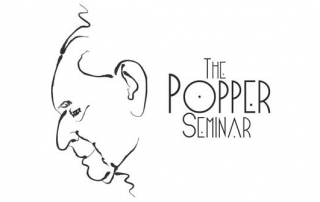Julia Staffel (Colorado): “Updating Incoherent Credences – Extending the Dutch Strategy Argument for Conditionalization”
Julia Staffel (Colorado): “Updating Incoherent Credences – Extending the Dutch Strategy Argument for Conditionalization”
In this paper, we ask: how should an agent who has incoherent credences update when they learn new evidence? The standard Bayesian answer for coherent agents is that they should conditionalize; however, this updating rule is not defined for incoherent starting credences. We show […]




Connect with us
Facebook
Twitter
Youtube
Flickr